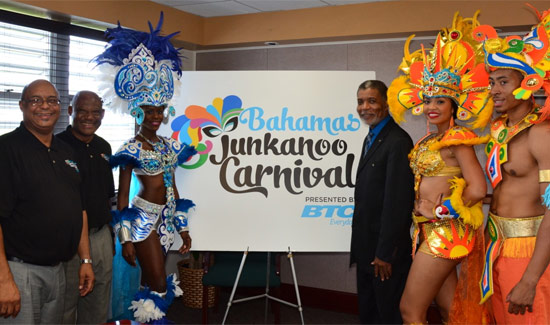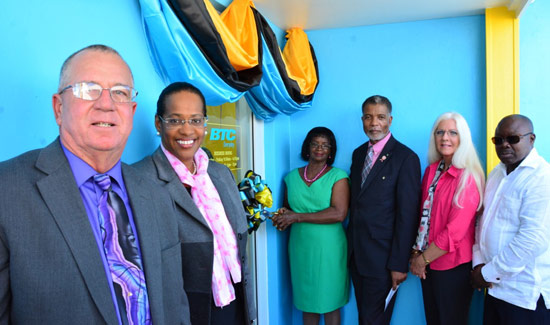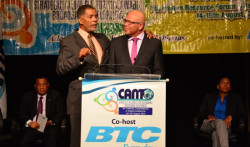 Bahamas Telecomunications Company (BTC) board member Bradley Roberts has pointed to “embarrassing publicity” received by BTC over reported inefficient Internet coverage at the 2013 CARIFTA Games, and suggested that the company’s explanation on the matter was unacceptable.
Bahamas Telecomunications Company (BTC) board member Bradley Roberts has pointed to “embarrassing publicity” received by BTC over reported inefficient Internet coverage at the 2013 CARIFTA Games, and suggested that the company’s explanation on the matter was unacceptable.
BTC was criticized, as it was the lead sponsor of the games.
However, BTC officials blamed the organizers of CARIFTA for the lack of adequate Internet service for the media.
An article titled “Internet a huge problem at CARIFTA” published on an Internet track blog highlighted the fact that BTC was the lead sponsor for the regional junior track event, which took place over the weekend at the new Thomas A. Robison Stadium.
The article also claimed, “Well into the meet, journalists suffered and may still be suffering big time from the poor quality of Internet service.
“We pleaded for Internet service on Friday, but nothing, apart from late in the night, after the opening ceremony, we were
told the net was up.”
The article was published on www.trackalerts.com.
In an email to BTC CEO Geoff Houston, Roberts pointed out that BTC announced last month that it intended to install a special cell tower to help improve services at the stadium.
“I note that a special cell tower was installed, yet this embarrassing publicity for the games’ major sponsor,” said Roberts in an email forwarded to the media.
“One step forward and two backwards. I personally continue to experience dropped cell calls on a daily basis. Is there a solution?”
In response to Roberts, Houston forwarded an official statement from BTC VP of Marketing Marlon Johnson, who responded to the writer of the article.
Johnson explained that BTC did not provide commercial
Internet services at the stadium.
“We were never asked to do so,” Johnson said. “We have provided free WiFi service for the first 1,500 customers who access the service.
“We were not contracted to provide any commercial grade service at the games. What ought to have happened perhaps is for the planning committee to have sought out a commercial service for WiFi Internet that is secure and password protected so as to enable the media to have dedicated access to the Internet.
“As for the broader question of mobile Internet availability, the unfortunate reality is that when you have 10,000 persons in a single small area, you will have some congestion.
“Persons who traveled to the Olympics or even those who visit the arenas in Florida for sporting events will tell you that once the stadium starts to get full, the availability of mobile Internet becomes less and less.
“We have added a new cell tower just outside the stadium which has helped. But short of a full in-stadium solution that would have to be funded at least in part by the stadium authority, it will be exceedingly difficult to provide full mobile hi-speed coverage for every user who wants it.”
However, Roberts said the explanation was unacceptable given the fact that the press was given the impression that the new cell site was expected to cover the stadium.
“BTC should have made it very clear what service it was providing so there could be no misunderstanding,” Roberts said in another email to Houston.
“I am at a loss over the suggestion of what the planning committee should have done when clearly BTC as the main sponsor was, or should have been, in the driver’s seat and sold or provided the committee a commercial grade WiFi service.
“Monday morning quarterbacking simply will not get the job done.”
By: Krystel Rolle
Guardian Staff Reporter



